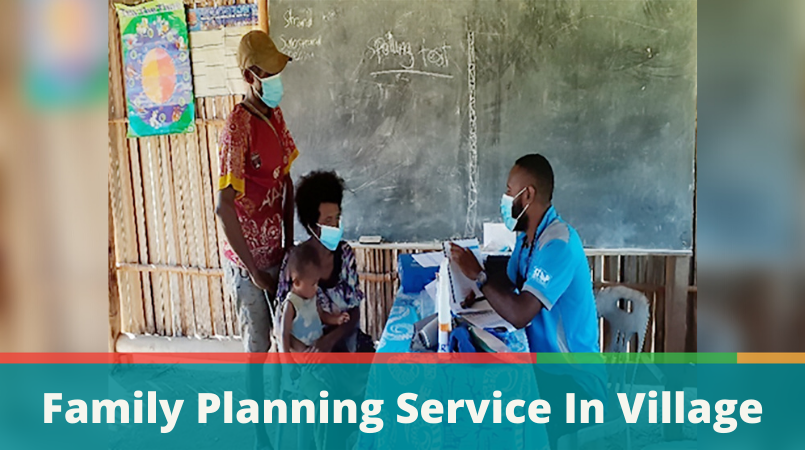
A mother of 13 children in Oro Province was ecstatic to access family planning services, which offers her choices of contraception for the first time.
Lianne (surname withheld) from Aba village in Oro’s Tamata LLG with her husband Ben were given family planning choices during a Marie Stopes outreach team patrol visit from Lae recently.
“Oro! Oro! Oro! Thank you Marie Stopes for visiting this part of the province,” Lianne chanted in her local vernacular.
“I was using herbs to assist my husband and I control and space our children, but that did not work,” she says.
Lianne’s story represents that of so many rural women, men, youths, and adolescents who are faced with limited or no access to contraceptives resulting in unplanned pregnancies and the high maternal mortality rates in the country.
The nearest health facility for Lianne and her husband is Manau Health Centre, however there are no family planning or reproductive health service providers on-site, so women in the area often have many children close together.
This is a worry for women like Lianne because of the physical demands of birthing all the children and the difficult realities of providing for them.
“My husband and I are subsistence farmers and we do not have any other means of income to support all our children with their basic needs,” Lianne says.
When Lianne and Ben heard that Marie Stopes outreach team in Lae would be visiting their village, they did not hesitate to seek help from them. They do not want to have any more children.
Marie Stopes rural multi-day outreach programs are supported through the PNG-Australia Partnership to provide family planning services to remote areas.
From January to June this year, Marie Stopes has reached over twenty-thousand people, offering a wide range of short-term, long-term and permanent methods of contraception to help prevent or space pregnancies. They have also reached over 350,000 people through the distribution of information education and communication materials.
The outreach team arrived at Aba village and used the elementary school open-air classroom to deliver family planning services to the villagers.
Lianne said they walked for one and a half hours to get to Aba village for her to get this implant.
“We were happy that the Marie Stopes PNG team visited our village to provide family planning service in our area.”
According to Marie Stopes, the implant is one of the family planning methods that helps prevent pregnancy for 3-5 years and could be removed at any time.
The contraceptive takes about five minutes to implant in the upper arm and is nearly 100 per cent effective in preventing unwanted pregnancies.
It is one of the family planning methods Marie Stopes offers that empowers women and families to have children by choice and not by chance.
MSPNG delivers family planning and sexual reproductive health services through two centres in Port Moresby and Lae; outreach patrols/mobile clinics and post-natal ward nurses stationed in numerous provincial general hospitals throughout the country.
Guided by its mission, “Children by Choice, not by Chance,” MSPNG works closely with the Government of Papua New Guinea through the Department of Health to ensure positive approaches to modern contraception are taken with public and private health workers trained to meet the demand for services.
